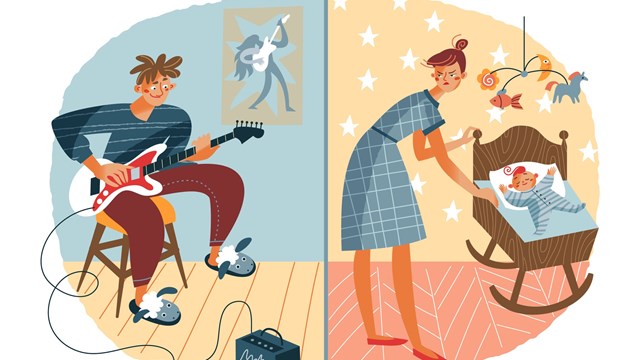
Q. Last year I became disabled, and applied to the board for approval for a companion dog. Upon approval, I signed an agreement that restricted the dog from certain areas of the association and reiterated that the dog could not be a nuisance to my neighbors. I installed $6,000 worth of thick padding and carpeting, as well as rugs to muffle any potential noise. The dog is fabulous, no barking etc. Recently we have had children visit on a regular basis, roughly three times a week, and they play with the dog for about 30 minutes. After one such visit, I received a letter from the board regarding the excessive, disruptive noise from my unit. Other than maybe a couple of times that the kids and the dog have run across the floors in my unit at night, I can't for the life of me figure out what could have caused such a disturbance. Could this complaint jeopardize my right to have this dog?
—Concerned in Cicero
A. “What considerations should the board make with respect to the unit owners request?” says attorney Charles Keough, an attorney and partner with the law firm of Keough & Moody in Naperville. “1) Is the unit owner disabled according to the FHA definition, i.e., does the unit owner have a physical or mental impairment that substantially limits one or more major life activities?
“2) Is the service animal necessary to afford the handicapped person the equal opportunity to use their dwelling? Does the animal serve a function directly related to the unit owner’s disability? Can the unit owner provide medical documentation to the Board that the dog is needed to accommodate the disability?
“3) Is the service animal a reasonable accommodation? I will presume from the question that the board and the owner came to terms on those items. Next, how specifically does the dog’s conduct amount to a nuisance? The owner’s explanation and the board’s letter do not seem to match up factually.
“Did the board cite specifics so that the owner is made aware of the complaints lodged about the dog? What is the nature of the excessive noise—is it related to barking, running, causing damage? Is this the board’s first notice to the owner about such noise? If the owner is made aware of the complaints, the owner may take steps to curtail the disruption. Does the board field complaints from owners about other noise violations emanating from other units and if so, what action has the board taken?
“In short, until the parties have had an opportunity to exchange facts about the dog’s conduct, I think that the owner need not yet worry about losing the right to maintain the dog.”









Leave a Comment